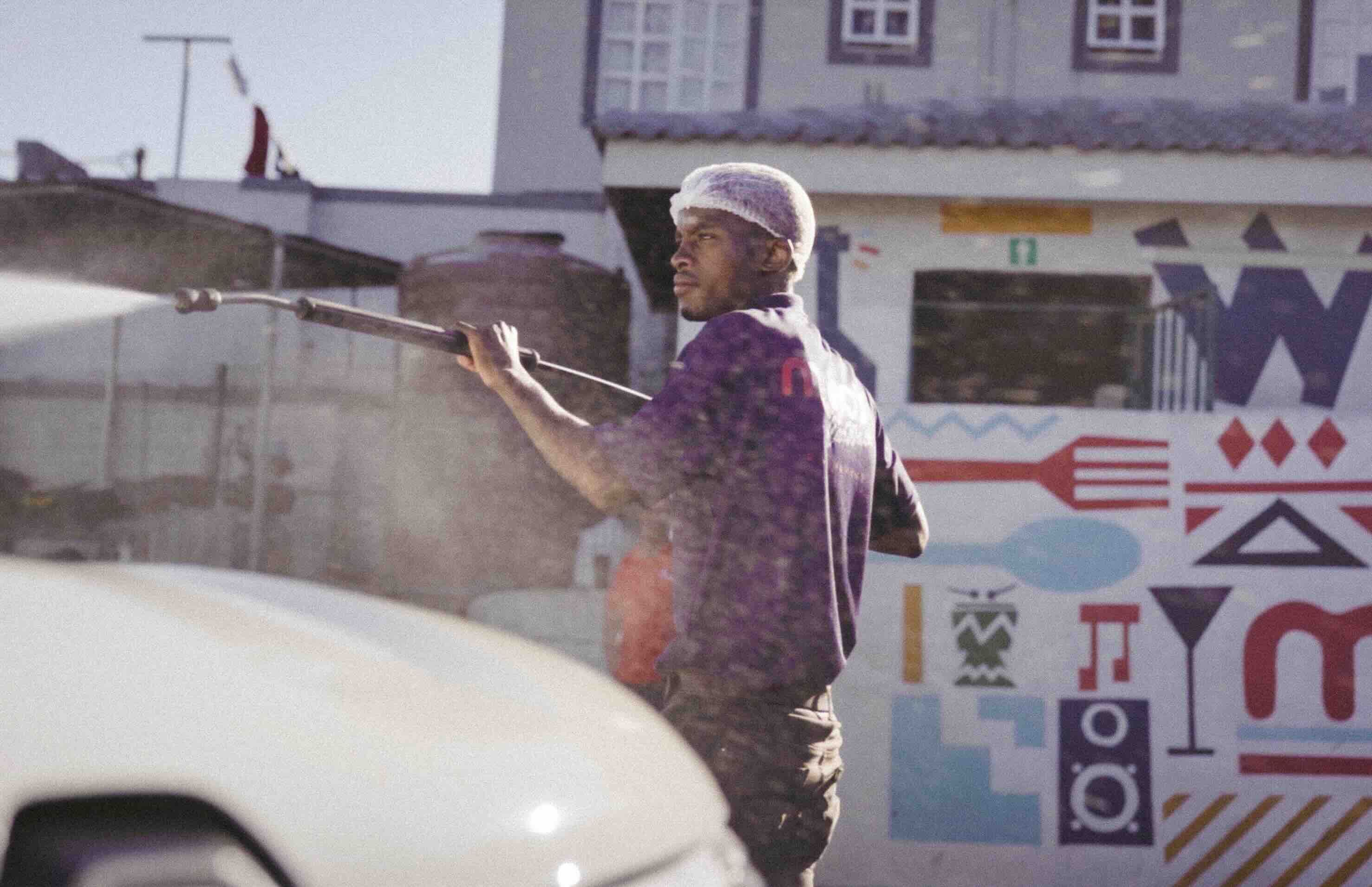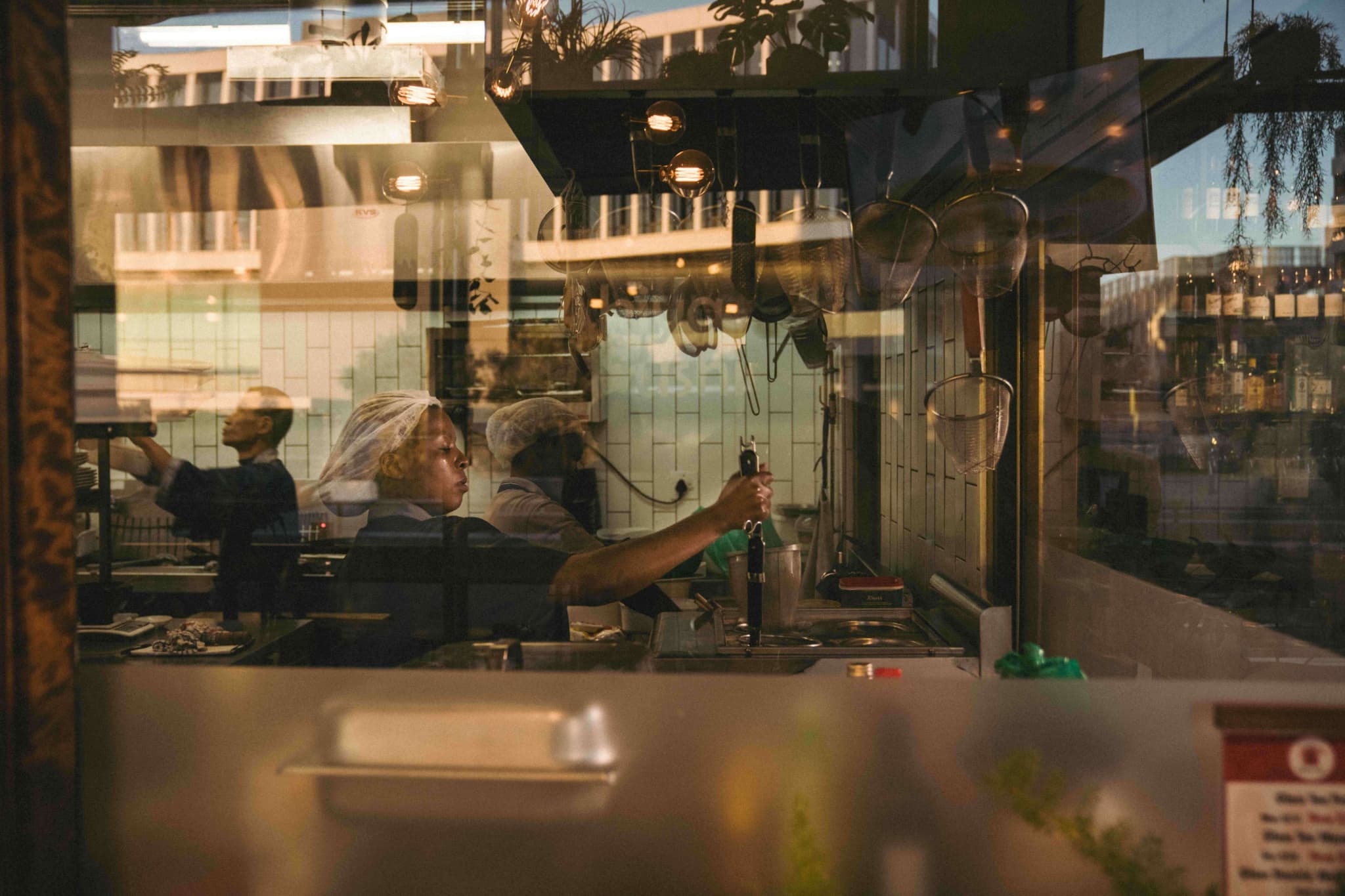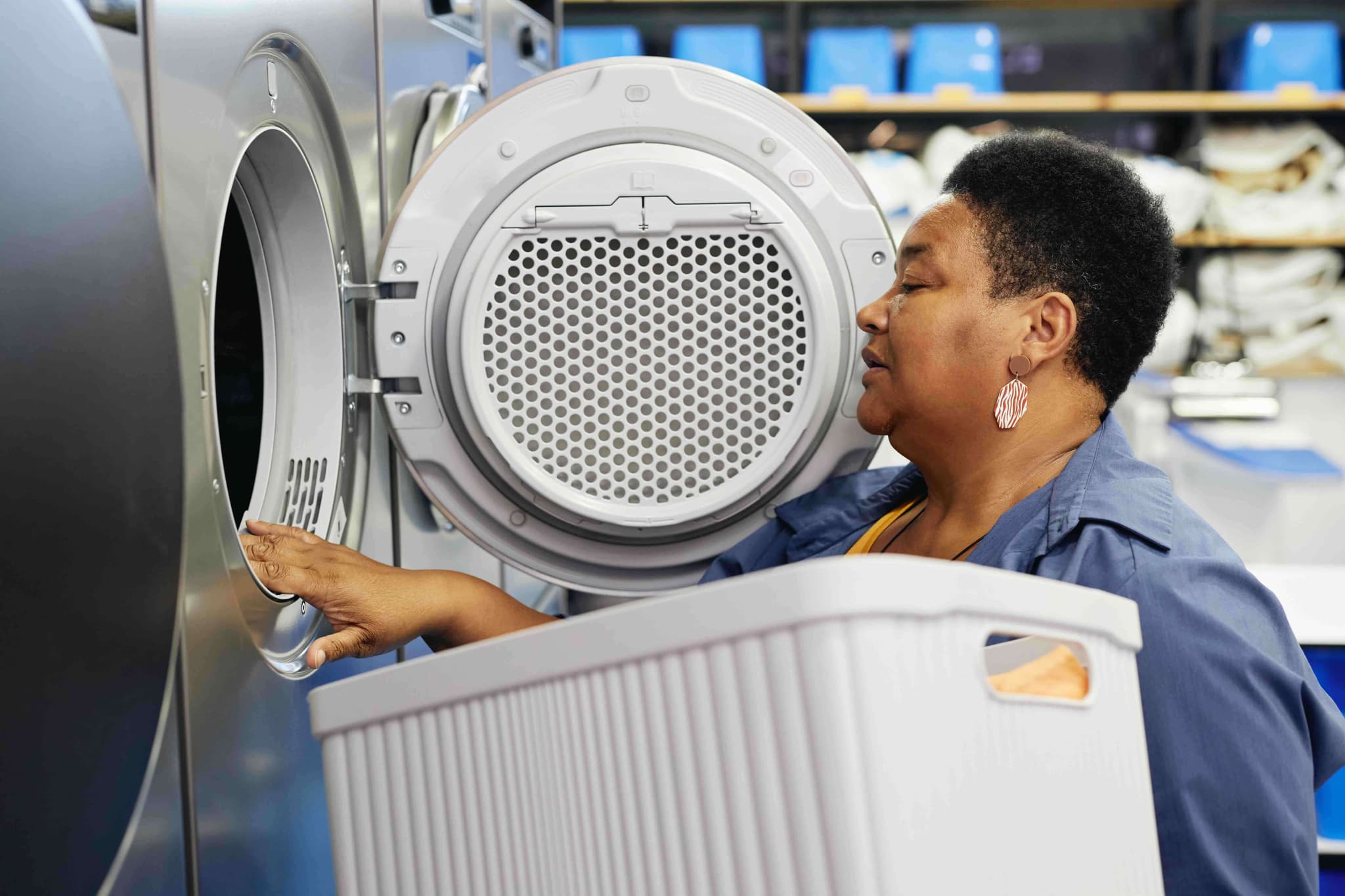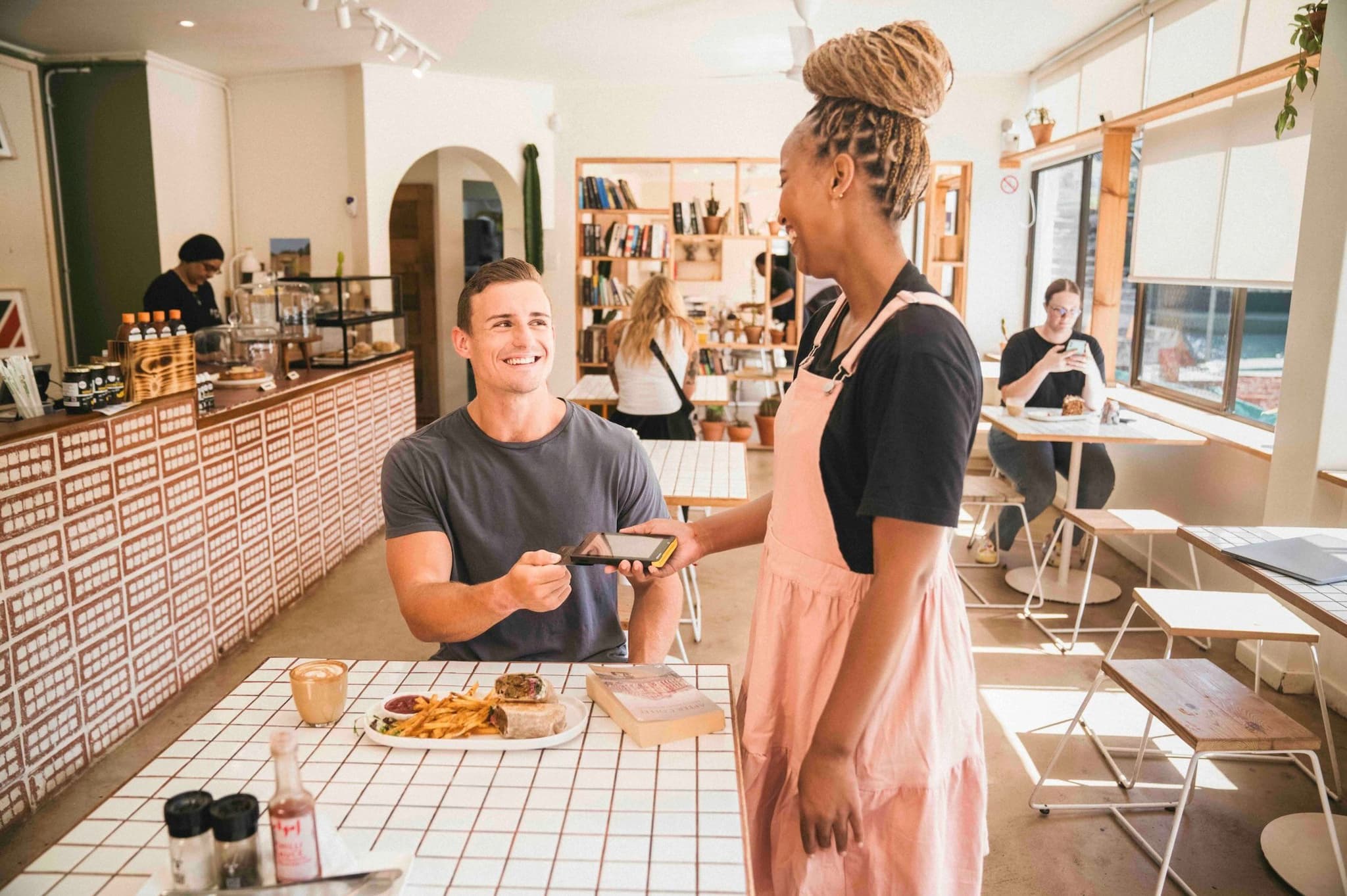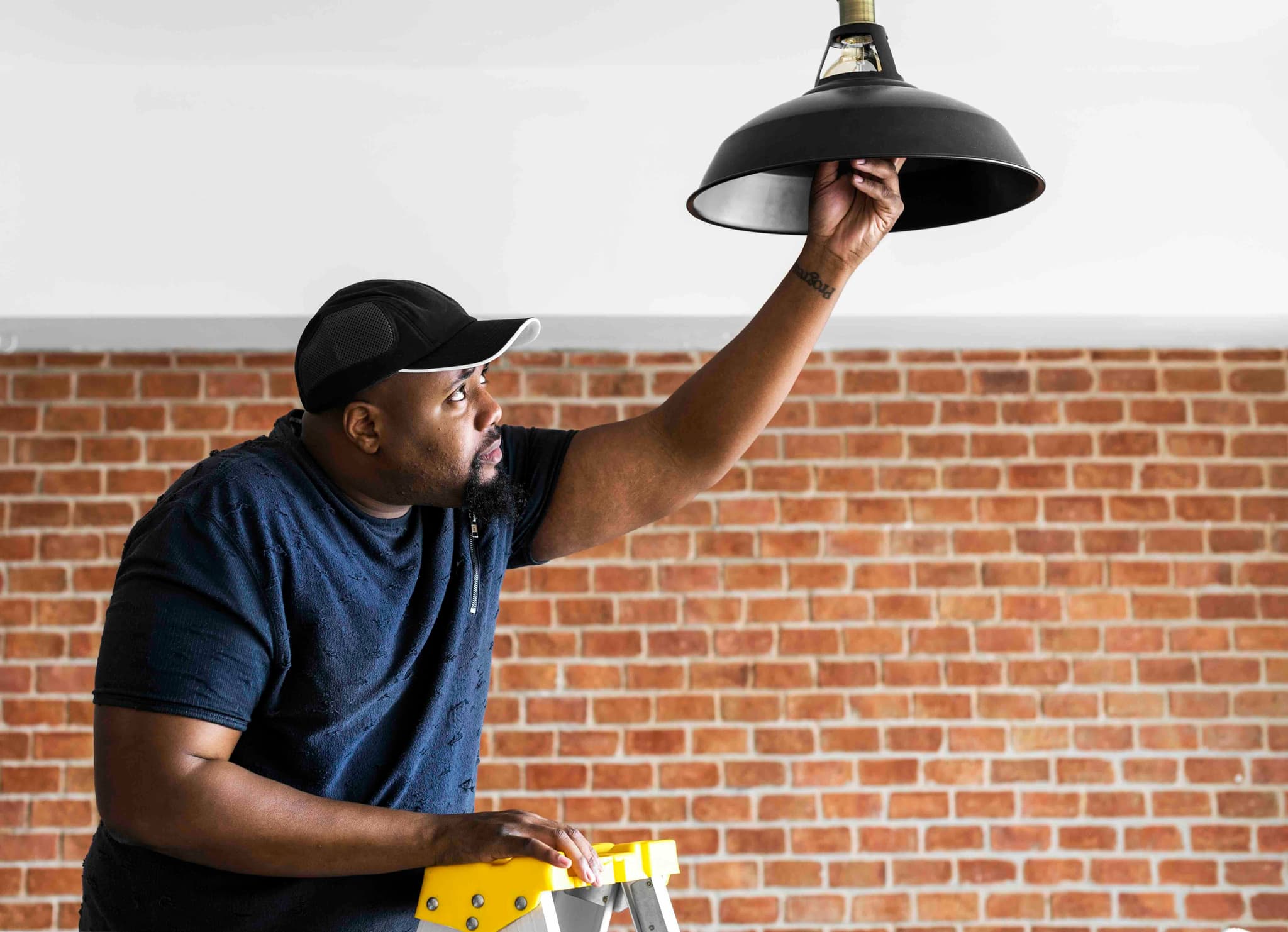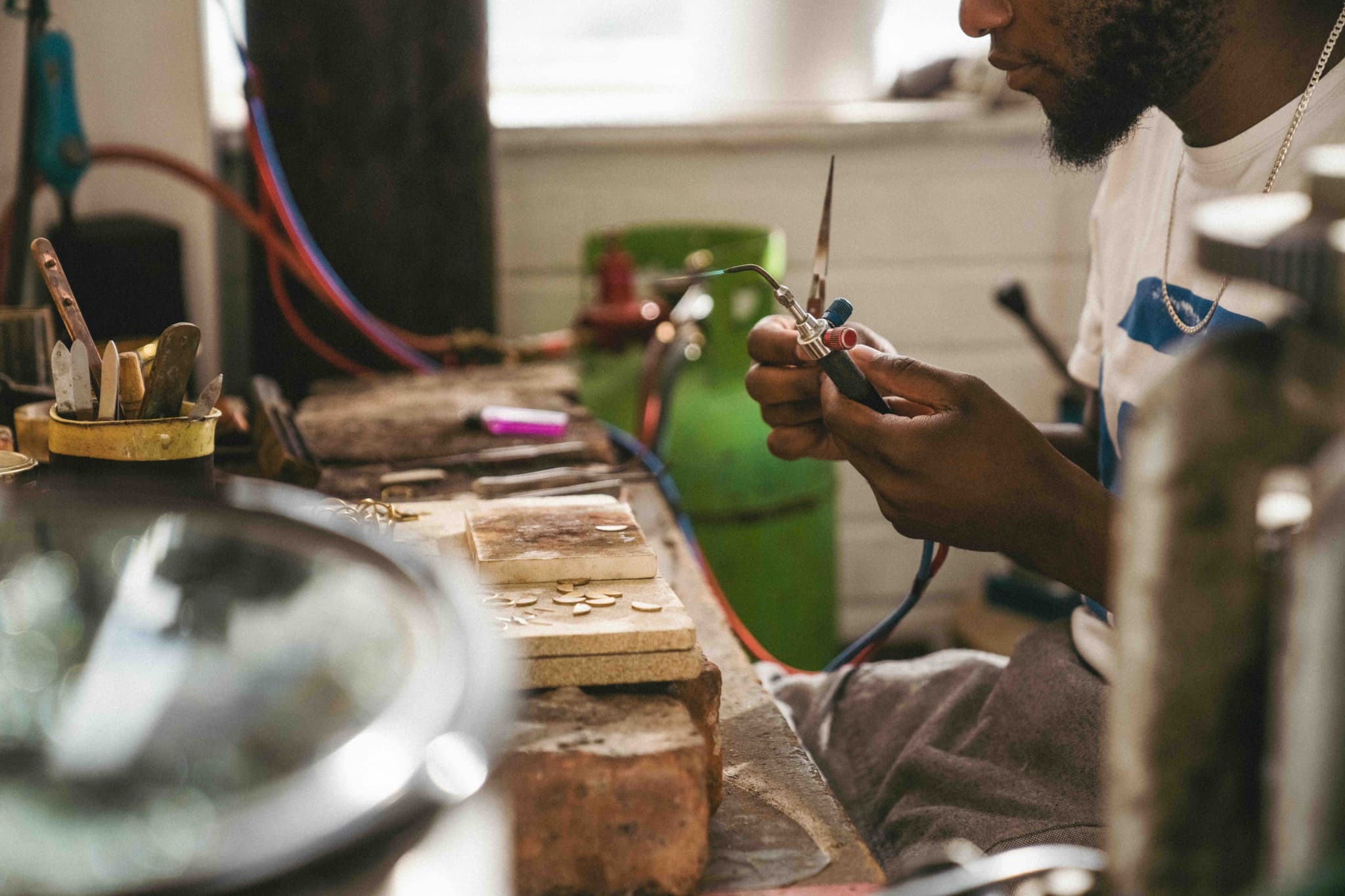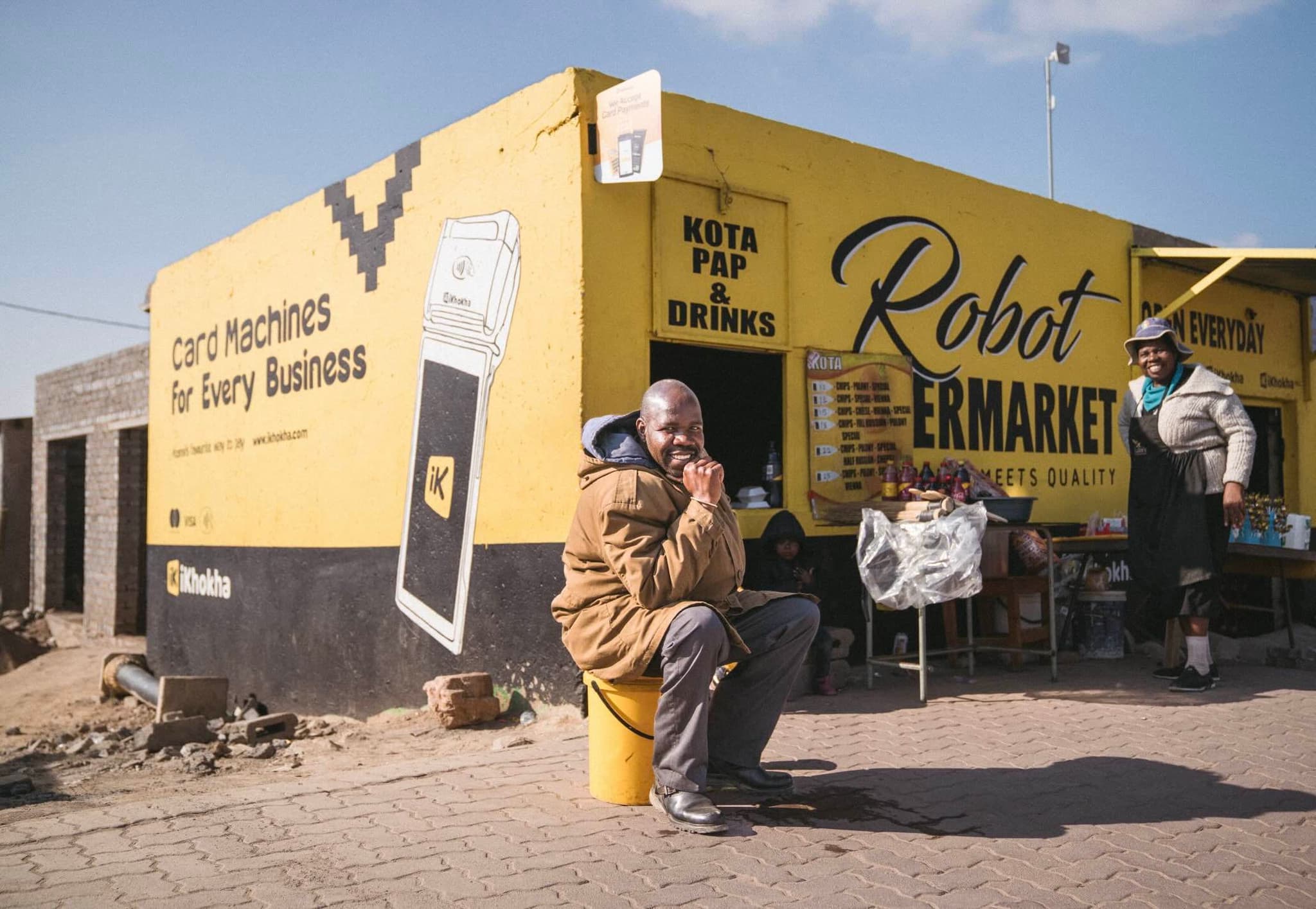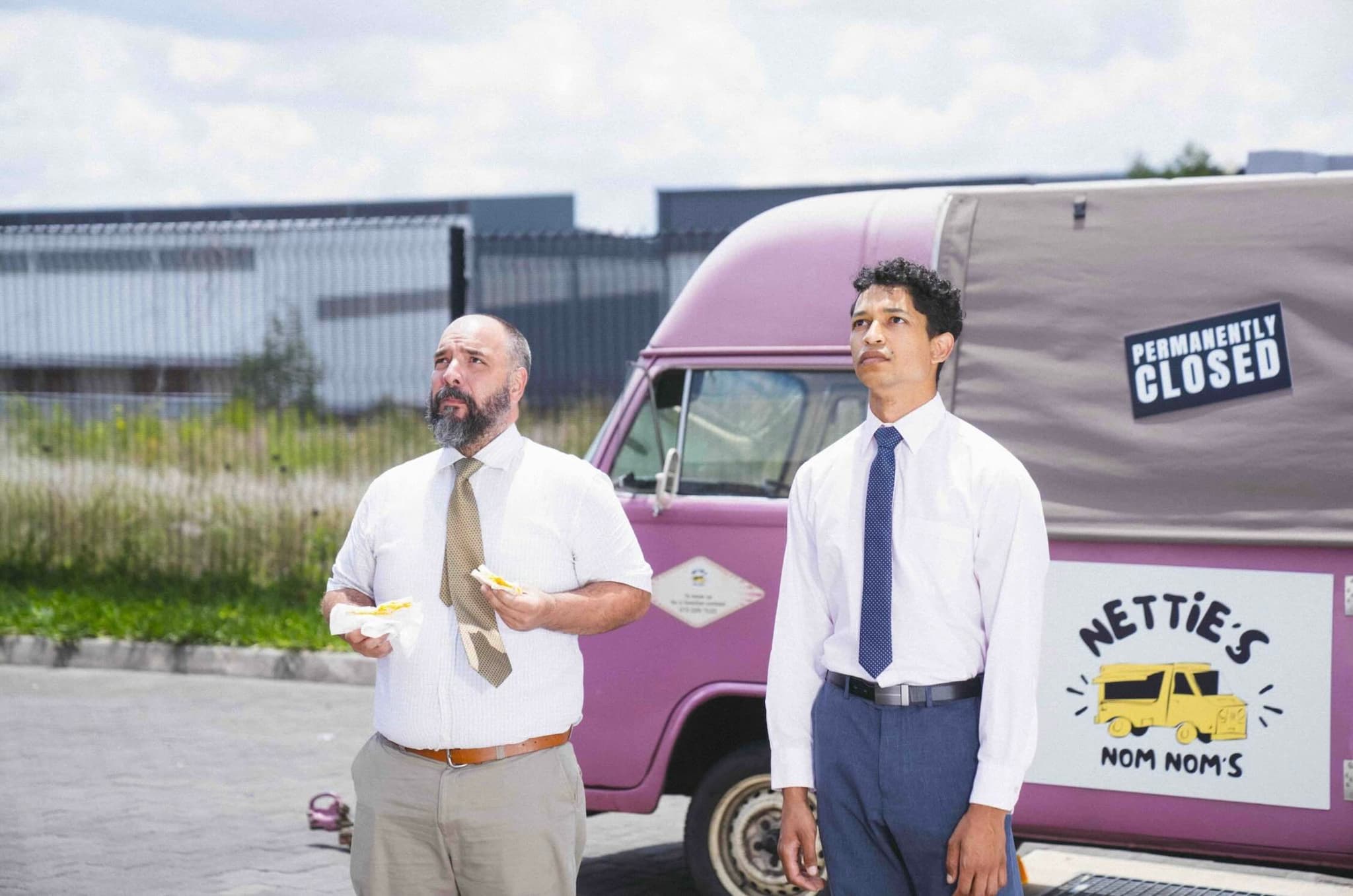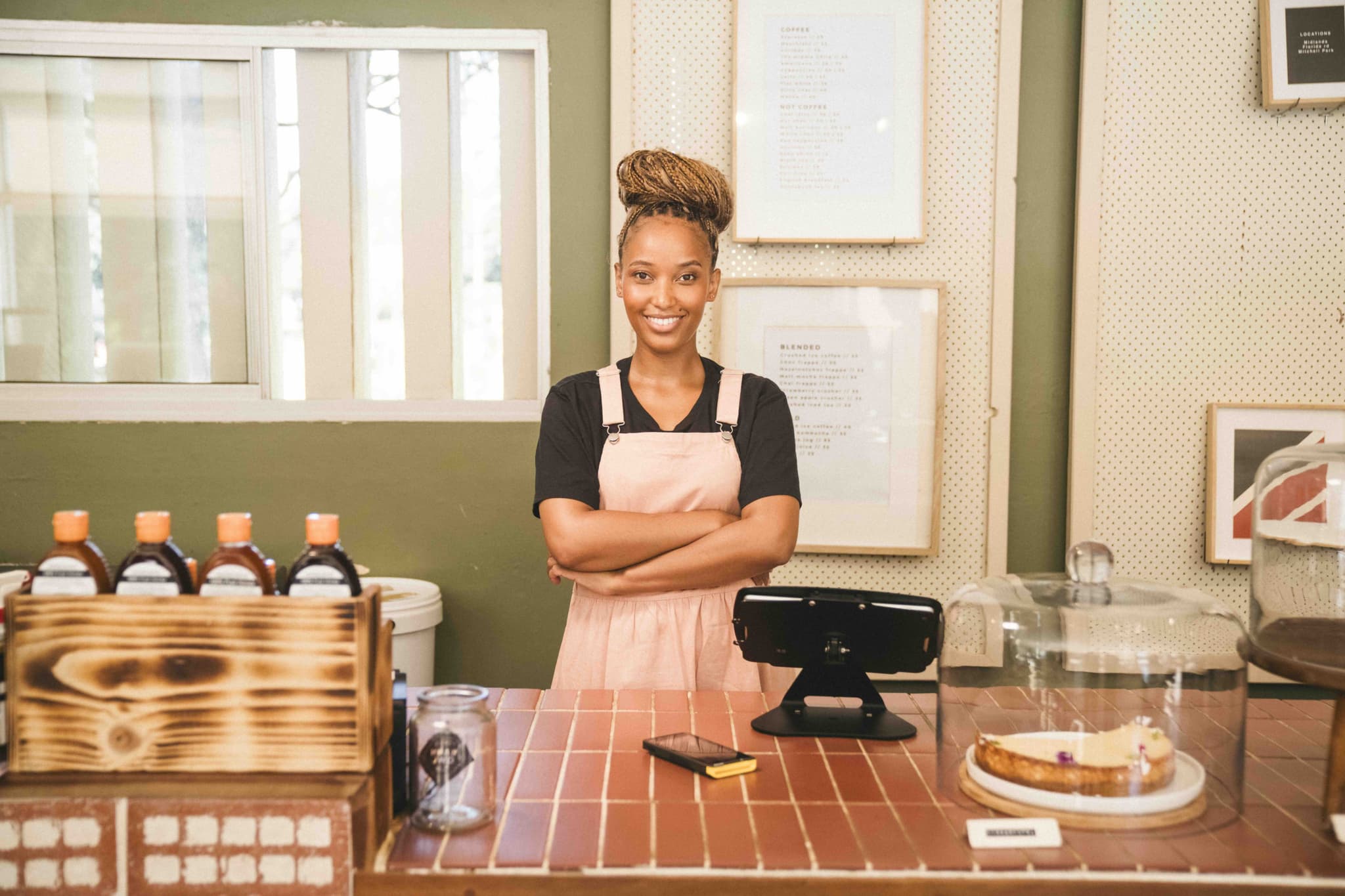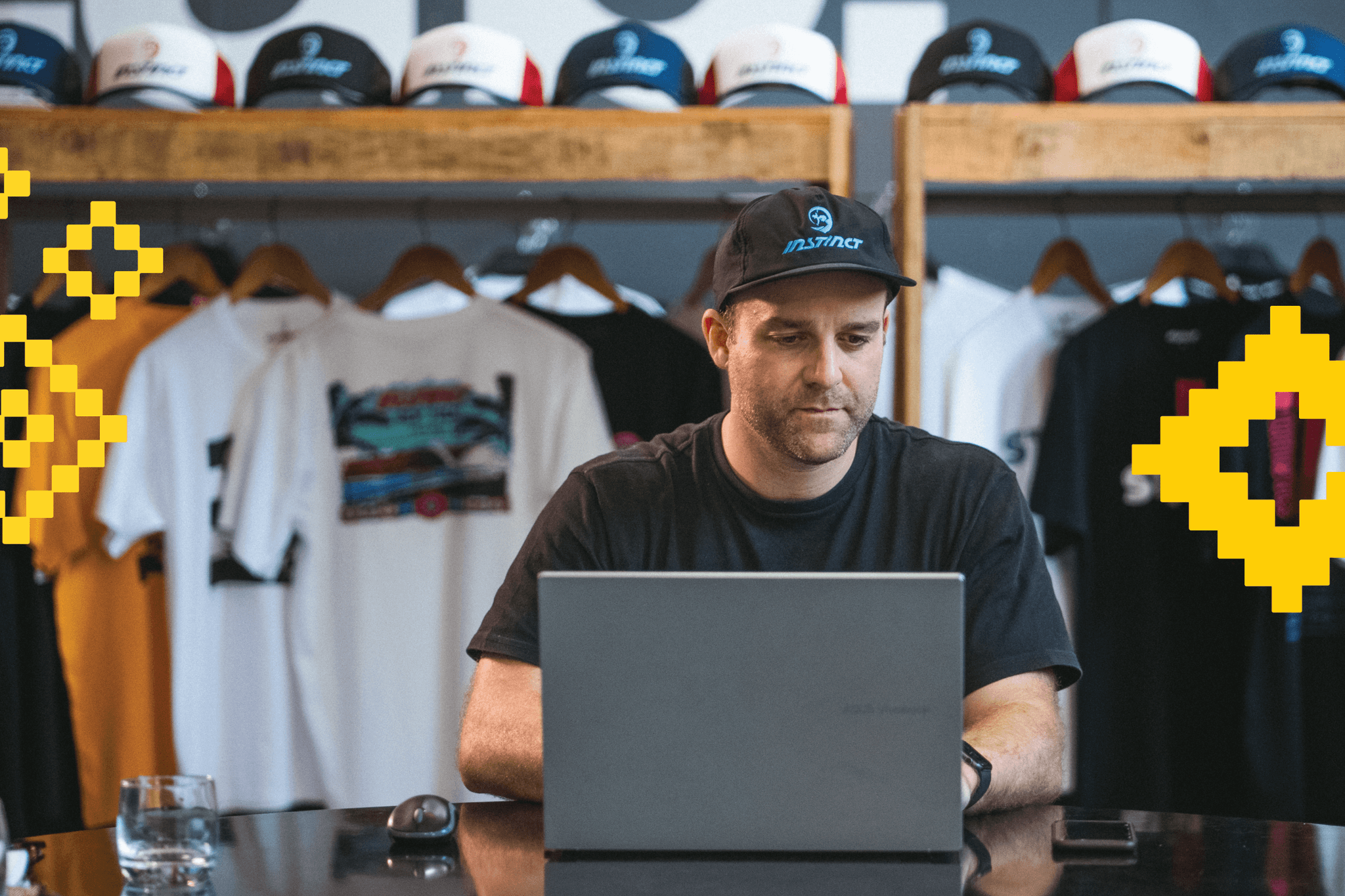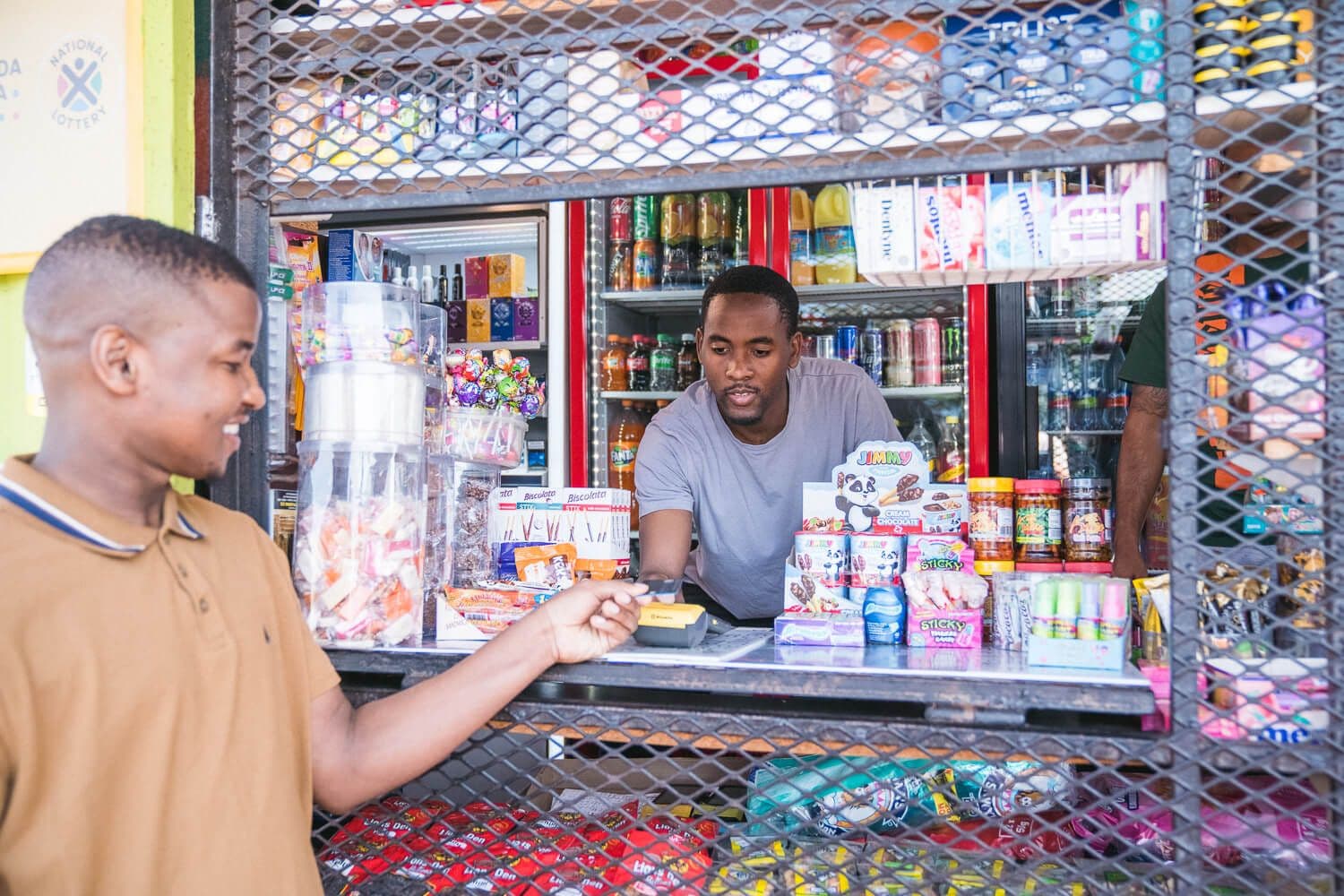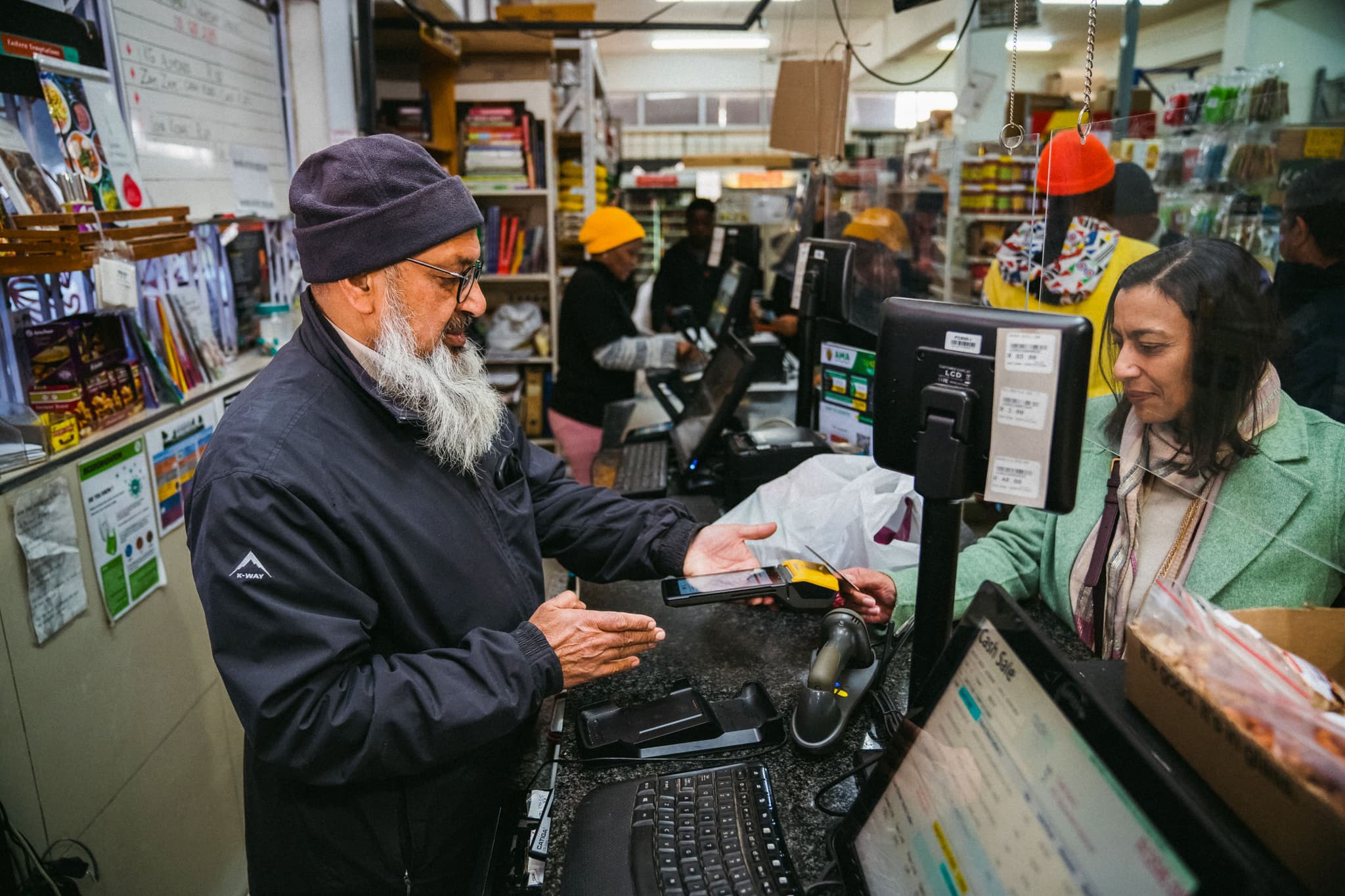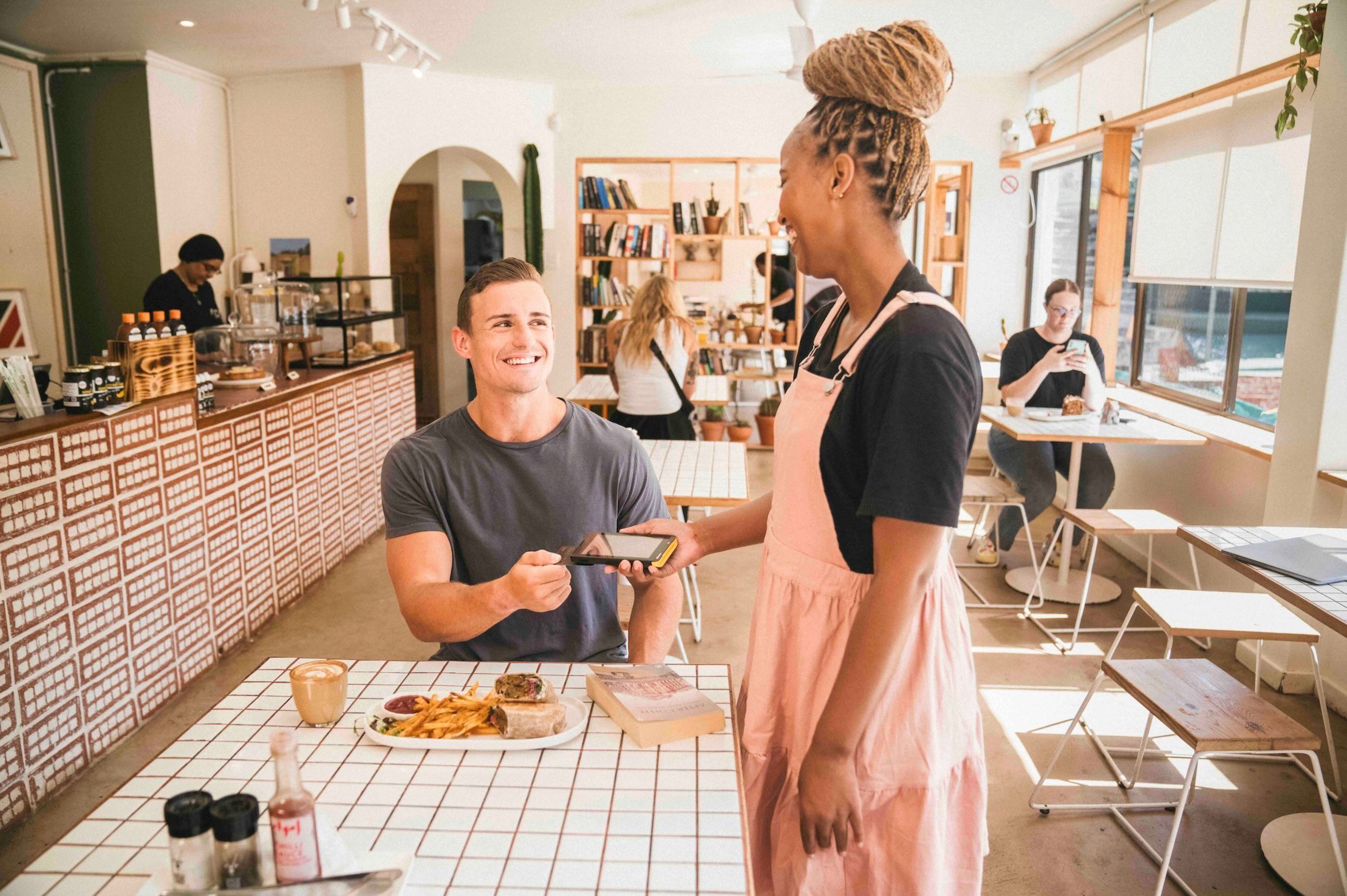
Brew Your Future: How to Start a Coffee Shop in South Africa
Dreaming of your own café? Here’s how to start a coffee shop in South Africa, with costs, tips and advice to create a space customers will keep coming back to.
Table of Content
- Introduction
- Know your coffee crowd
- Pick a coffee business model that works for you
- Here are three common models in South Africa:
- Budget for success: what it costs to open a coffee shop
- Location, location, location: where to open your coffee shop
- Get the paperwork right: licenses, permits & registration
- Here’s what you’ll need:
- Gear up: equipment & essentials for your coffee shop
- Build your dream team: hiring and training staff
- Serve more than just coffee: menu & extras that drive sales
- Spread the word: marketing that brings customers in
- Expect challenges and know how to tackle them
- Here are a few common hurdles and how to overcome them:
- Brew the dream: start your coffee business using iKhokha
Have you ever dreamt of running your own cosy coffee spot? One where regulars know your name and the espresso hits just right?
Coffee shops are popping up everywhere from neighbourhood corners, office parks, even petrol stations. And it's simple to understand why. For a brief catch-up, a business meeting, or simply a peaceful moment during a hectic day, a good cup of coffee unites people.
If you've ever considered becoming a café owner, this could be the ideal moment to give it serious consideration. More neighbourhood coffee shops that provide excellent coffee, friendly service and a cosy atmosphere are still needed.
With helpful advice to help you save time, money, and a few headaches along the way, this guide will show you how to open your coffee shop.
Know your coffee crowd
Spend some time determining the target audience for your coffee shop before investing in equipment or rent.
South Africans who enjoy coffee? They differ greatly from one another. Before work, some people prefer to order takeaway, while others require a dependable location to connect their laptop. Don't forget about the regulars, who will visit each morning if you can recall their name and typical order.
Big brands like Starbucks and Vida e Caffè are well-known, sure. But there’s something different about local cafés that feel like part of the community. People still want that. You don’t need to compete with the big names, just offer something real, consistent and yours.
Making decisions regarding location, pricing, and even the kind of coffee you serve will be simpler if you have a better understanding of your clientele.
Pick a coffee business model that works for you
Running a coffee shop can be done in a variety of ways, and choosing the best business plan can help you save costs, operate more efficiently, and expand your company more quickly. Your setup costs, staffing requirements, equipment list and customer service are all impacted by your model.
Here are three common models in South Africa:
1. The sit-down café
Think neighbourhood favourites in suburbs like Morningside or Claremont, places where people linger over laptops or catch up with friends. You’ll need more space, a broader menu, and staff who create a welcoming vibe. This model often works best when you can build loyalty programmes and host small events to keep regulars coming back.
2. The kiosk or coffee bar
A kiosk is your go-to if you’re thinking mall corners, campus buzz or busy office parks. The focus here is speed and convenience. With a small footprint, you still need a reliable card machine and fast checkouts, which make iKhokha’s portable card machines the perfect payment solution for this type of business.
3. The mobile coffee cart
If you love moving around, a coffee cart gives you flexibility. Think weekend markets, corporate gigs, or pop-ups. You’ll want a lightweight setup, mobile data, and a card machine that works wherever you go, like the iK Flyer or iK Flyer Lite.
Budget for success: what it costs to open a coffee shop
Being financially savvy is more important than being a millionaire when starting a coffee shop in South Africa. Although the exact cost will vary depending on your setup, local business owners usually have to deal with the following:
- Espresso machine: Expect to pay anywhere between R25 000 and R60 000 for a reliable workhorse.
- Coffee grinder: Around R8 000 – R20 000, depending on size and brand.
- Fit-out & décor: Even a modest look will set you back R50 000 – R150 000 for furniture, paint, and signage.
- Licensing & permits: Budget R5 000 – R15 000, with timelines that vary by municipality.
On the monthly side:
- Rent can range from R10 000 for a small suburban shop to R50 000+ in a Sandton mall.
- Staff wages run around R5 000 – R8 000 per employee.
- Stock costs (beans, milk, pastries) average R10 000 – R20 000.
Location, location, location: where to open your coffee shop
Even if you have the greatest beans and the most visually appealing cups, you will still struggle if your coffee shop is located poorly. Accessibility, foot traffic, atmosphere, and convenience are all important factors in a good location in addition to visibility.
When scouting, keep these questions in mind:
- Foot traffic: Do enough people pass by to keep you occupied every day of the week, not just on Saturdays?
- Accessibility: Is it simple for patrons to park or enter on foot?
- Safety: During your trading hours, will visitors feel at ease?
- Zoning: Is it permissible to operate food and beverage businesses there?
- Competition: Are the other cafés in the area crowded, indicating strong demand, or deserted, indicating weak demand?
Get the paperwork right: licenses, permits & registration
A few legal requirements must be met before you can begin steaming milk and making espresso shots. In South Africa, operating a coffee shop requires obtaining the necessary permits and adhering to food safety regulations. It may sound like a mission, but once you know what's required, it's not that bad.
Here’s what you’ll need:
1. A Business License
Any business that sells food or drink for public consumption must have a license under the Businesses Act. You can apply through your local municipality, and processing usually takes a few weeks.
2. A Certificate of Acceptability (COA)
This certificate proves your coffee shop meets health and hygiene standards. You’ll need to outline your food handling practices and have your premises inspected.
3. Company Registration
While you can operate as a sole proprietor, registering your business with the CIPC adds legitimacy and makes it easier to open a business bank account or apply for funding.
Need a step-by-step guide? Check out our blog on how to register a business in South Africa.
Once you’ve got your paperwork sorted, you can start trading with confidence – and set up your iKhokha profile to begin accepting card payments, managing your sales, and building your business the right way from day one.
Gear up: equipment & essentials for your coffee shop
You don’t need a showroom full of fancy gear to start a coffee shop. What you do need are reliable basics that let you serve consistently good coffee and create a space people want to return to.
Your essentials should include:
- Espresso machine and grinder
- A fridge for milk and perishables
- Hot water urn or kettle
- Cups, napkins, and takeaway packaging
- Cleaning supplies to keep things spotless
On top of that, think about the furniture and finishing touches: a few tables and chairs, a counter for displaying food, clear menu boards, and décor that matches your café’s personality.
Build your dream team: hiring and training staff
Even the best coffee shop concept falls flat without great people behind the counter. Whether you're hiring one barista or building a full team, the goal is the same: friendly, reliable staff who care about the customer experience as much as you do.
Start small and hire for attitude over experience. It’s easier to teach someone how to steam milk than it is to teach them to smile. That said, investing in basic barista training – either online or through a local programme – can level up your service and set your business apart.
What to look for in your team:
- Good communication and customer service skills
- A willingness to learn and grow
- Attention to detail (especially when it comes to cleanliness and consistency)
- Reliability and punctuality
Additionally, ensure that your employees receive rewards when they go above and beyond. With the built-in tipping feature of iKhokha card machines, satisfied customers can quickly express their gratitude. It's a low-cost method of raising spirits and fostering a culture at work where your employees feel appreciated.
Serve more than just coffee: menu & extras that drive sales
Your business may revolve around coffee, but what really draws customers in is your menu. A carefully considered menu of food and beverages not only raises your average sales but also broadens your customer base.
Start with the traditional fare, such as warm muffins straight from the oven, gooey brownies, and buttery croissants. Next, consider extras like teas, smoothies, or coffee syrups with flavours. These minor extras can increase revenue without making your workflow more difficult.
Want to earn even more? Get creative with:
- House blends or signature drinks: Create something your customers can’t get anywhere else.
- Coffee merchandise:Think mugs, tote bags, or gift packs.
- Retail coffee: Sell your own beans or collaborate with a local roaster.
Spread the word: marketing that brings customers in
You’ve got your space, your coffee, and your team – now it’s time to get people through the door. And good news: you don’t need a big marketing budget to make a big impact. With the right strategy (and a little hustle), word of mouth can travel fast.
Start by telling your story. People love supporting small businesses that feel real, relatable, and local. Share why you started, what makes your coffee special, and what kind of vibe customers can expect when they visit.
Here’s how to get the word out:
- Social media: Instagram and TikTok are your best friends. Post behind-the-scenes videos, customer photos, and daily specials.
- Launch specials: Offer a free coffee with every purchase, or run a loyalty card programme to keep regulars coming back.
- Community events: Thinking of hosting a quiz night or poetry slam? That’s the kind of vibe people remember.
Expect challenges and know how to tackle them
Let's face it, managing a coffee shop isn't always easy. There will be calm days, challenging clients, problems with suppliers, and the sporadic breakdown of equipment. However, every obstacle presents a chance to enhance, modify, and fortify your company.
Here are a few common hurdles and how to overcome them:
Slow foot traffic?
Rethink your marketing. Promote time-limited deals, collaborate with local businesses, or run social media giveaways to boost visibility. Also consider adding takeaway options or delivery if your area allows it.
Feeling the pinch on cash flow?
Keep tight control over stock and spending. The iKhokha app shows your daily sales, top performers, and expenses at a glance, so you can make informed decisions fast.
Tough competition nearby?
Differentiate your brand. Create a signature drink, host community events, or offer something extra, like fast card payments, friendly baristas, and prepaid services. Your uniqueness is your superpower.
Staffing problems?
Develop, honour, and keep good people. Make use of your card machine's tip feature to inspire your staff and foster an environment they want to work in.
Keep in mind that these were the same challenges faced by all successful coffee shop owners. What's the difference? They persisted and kept one step ahead by using the appropriate resources.
Brew the dream: start your coffee business using iKhokha
Starting a coffee shop in South Africa is about building a space where people connect, slow down, and feel at home. And when you combine your passion for coffee with the right tools and planning, you’ve got a recipe for real success.
At iKhokha, we’re more than just a card machine provider; we’re your business partner from day one. Whether you’re starting small or dreaming big, our ecosystem is built to support your growth:
- Sell anywhere with a range of affordable, mobile card machines.
- Work smarter using the iKhokha app to track sales and run your café from your phone.
- Stay in control with reports, customer insights and seamless point-of-sale tools that grow with your business.
.
So why wait? Brew the dream, serve up something special, build your spot on the block and serve your community, one cup at a time. We’ll be right there with you, every step of the way.
